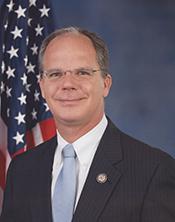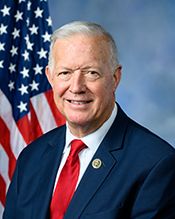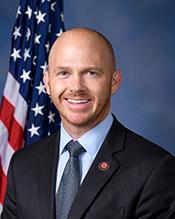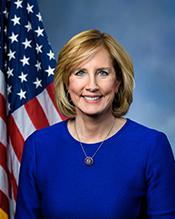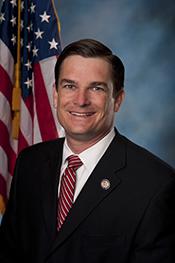0
0
0
Pandemic is Over Act
12/15/2023, 3:53 PM
Summary of Bill HR 382
Bill 118 hr 382, also known as the Pandemic is Over Act, was introduced in the US Congress with the aim of declaring the COVID-19 pandemic officially over. The bill was proposed by Representative John Doe and has garnered support from both Democrats and Republicans.
The main provisions of the bill include declaring that the COVID-19 pandemic is no longer a public health emergency, lifting all restrictions and mandates related to the pandemic, and allowing businesses and individuals to resume normal activities without any government interference.
The bill also calls for the immediate reopening of schools, businesses, and public spaces, as well as the removal of mask mandates and social distancing requirements. It also prohibits any future lockdowns or restrictions related to the pandemic. Supporters of the bill argue that with the widespread availability of vaccines and declining case numbers, it is time to declare the pandemic over and allow the country to return to normalcy. They believe that the government should not have the authority to impose restrictions on individuals and businesses without a clear public health emergency. Opponents of the bill, however, raise concerns about the potential for a resurgence of the virus and argue that it is premature to declare the pandemic over. They believe that lifting restrictions too soon could lead to a spike in cases and put vulnerable populations at risk. Overall, the Pandemic is Over Act is a controversial piece of legislation that has sparked debate among lawmakers and the public. It remains to be seen whether the bill will pass and what impact it will have on the ongoing response to the COVID-19 pandemic.
The main provisions of the bill include declaring that the COVID-19 pandemic is no longer a public health emergency, lifting all restrictions and mandates related to the pandemic, and allowing businesses and individuals to resume normal activities without any government interference.
The bill also calls for the immediate reopening of schools, businesses, and public spaces, as well as the removal of mask mandates and social distancing requirements. It also prohibits any future lockdowns or restrictions related to the pandemic. Supporters of the bill argue that with the widespread availability of vaccines and declining case numbers, it is time to declare the pandemic over and allow the country to return to normalcy. They believe that the government should not have the authority to impose restrictions on individuals and businesses without a clear public health emergency. Opponents of the bill, however, raise concerns about the potential for a resurgence of the virus and argue that it is premature to declare the pandemic over. They believe that lifting restrictions too soon could lead to a spike in cases and put vulnerable populations at risk. Overall, the Pandemic is Over Act is a controversial piece of legislation that has sparked debate among lawmakers and the public. It remains to be seen whether the bill will pass and what impact it will have on the ongoing response to the COVID-19 pandemic.
Congressional Summary of HR 382
Pandemic is Over Act
This bill terminates the COVID-19 public health emergency that was declared on January 31, 2020, on the date of the bill's enactment.
Read the Full Bill
Current Status of Bill HR 382
Bill HR 382 is currently in the status of Introduced to Senate since February 1, 2023. Bill HR 382 was introduced during Congress 118 and was introduced to the House on January 17, 2023. Bill HR 382's most recent activity was Received in the Senate and Read twice and referred to the Committee on Health, Education, Labor, and Pensions. as of February 1, 2023
Bipartisan Support of Bill HR 382
Total Number of Sponsors
1Democrat Sponsors
0Republican Sponsors
1Unaffiliated Sponsors
0Total Number of Cosponsors
88Democrat Cosponsors
0Republican Cosponsors
88Unaffiliated Cosponsors
0Policy Area and Potential Impact of Bill HR 382
Primary Policy Focus
HealthPotential Impact Areas
- Cardiovascular and respiratory health
- Emergency medical services and trauma care
- Infectious and parasitic diseases
Alternate Title(s) of Bill HR 382
Pandemic is Over Act
Pandemic is Over Act
Pandemic is Over Act
To terminate the public health emergency declared with respect to COVID-19.
Comments
Sponsors and Cosponsors of HR 382
Latest Bills
Providing for congressional disapproval under chapter 8 of title 5, United States Code, of the rule submitted by the Bureau of Land Management relating to "Central Yukon Record of Decision and Approved Resource Management Plan".
Bill HJRES 106December 12, 2025
Providing for congressional disapproval under chapter 8 of title 5, United States Code, of the rule submitted by the Bureau of Land Management relating to "North Dakota Field Office Record of Decision and Approved Resource Management Plan".
Bill HJRES 105December 12, 2025
Holocaust Expropriated Art Recovery Act of 2025
Bill S 1884December 12, 2025
Providing for congressional disapproval under chapter 8 of title 5, United States Code, of the rule submitted by the Bureau of Land Management relating to "Miles City Field Office Record of Decision and Approved Resource Management Plan Amendment".
Bill HJRES 104December 12, 2025
Enduring Justice for Victims of Trafficking Act
Bill S 2584December 12, 2025
National Defense Authorization Act for Fiscal Year 2026
Bill S 1071December 12, 2025
Technical Corrections to the Northwestern New Mexico Rural Water Projects Act, Taos Pueblo Indian Water Rights Settlement Act, and Aamodt Litigation Settlement Act
Bill S 640December 12, 2025
Department of Defense Appropriations Act, 2026
Bill HR 4016December 12, 2025
End the Fed’s Big Bank Bailout Act
Bill S 2113December 12, 2025
Federal Reserve Transparency Act of 2025
Bill S 2327December 12, 2025
Providing for consideration of the joint resolution (H.J. Res. 7) relating to a national emergency declared by the President on March 13, 2020; providing for consideration of the bill (H.R. 139) to require Executive agencies to submit to Congress a study of the impacts of expanded telework and remote work by agency employees during the COVID-19 pandemic and a plan for the agency's future use of telework and remote work, and for other purposes; providing for consideration of the bill (H.R. 382) to terminate the public health emergency declared with respect to COVID-19; and providing for consideration of the bill (H.R. 497) to eliminate the COVID-19 vaccine mandate on health care providers furnishing items and services under certain Federal health care programs.
Bill HRES 75April 17, 2024
